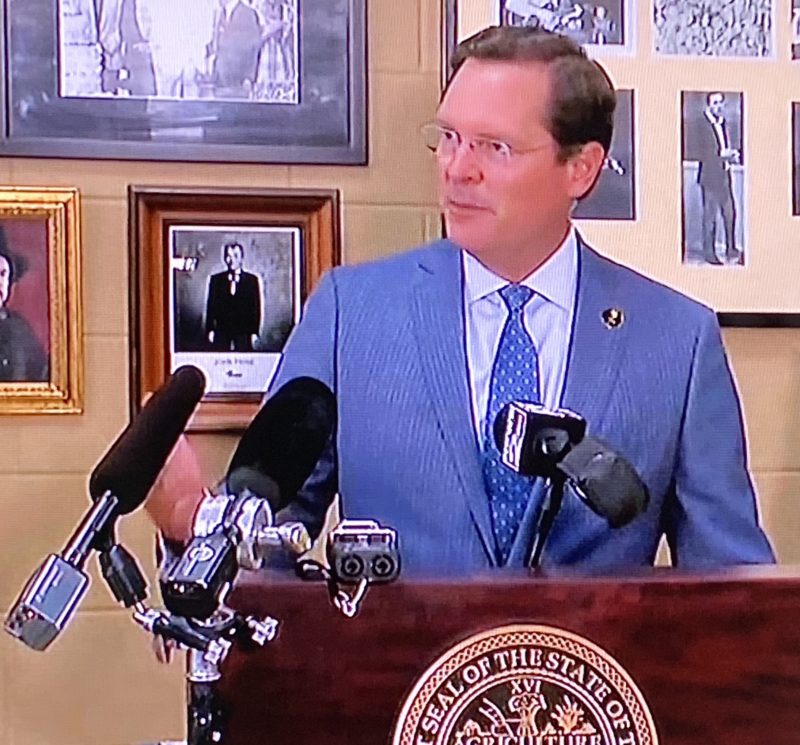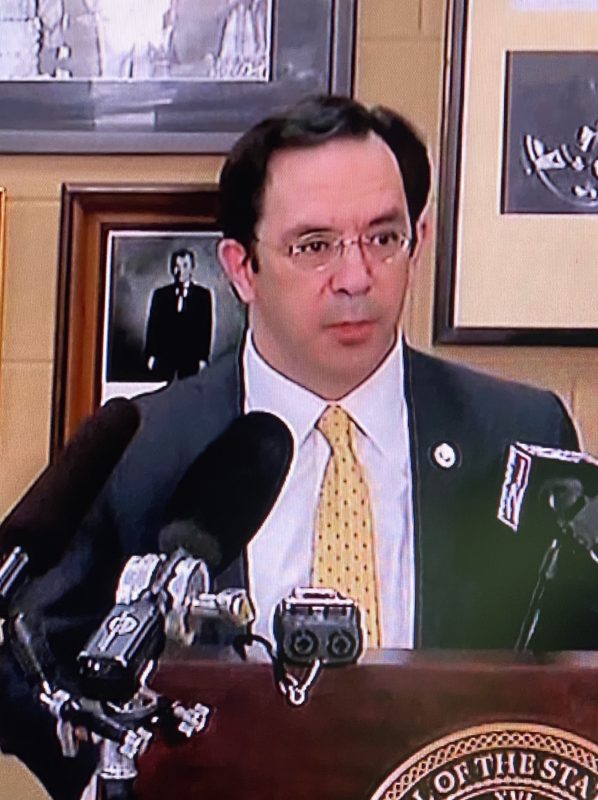
By Michelle Price
Special to the UCBJ
$200 million directed to over 28,000 small businesses affected by the pandemic
NASHVILLE – Gov. Bill Lee and the state’s senior leadership gathered at Arnold’s Family Restaurant in Nashville to announce the Tennessee Business Relief Program for businesses affected by the COVID-19 pandemic. The program will direct approximately $200 million in federal Coronavirus Relief Funds through the Department of Revenue directly to the over 28,000 small businesses that qualify.
According to Lee, companies with fewer than 50 employees make up more than 94% of our state’s private sector.
“Tennessee small businesses are more than an economic driver. They are pillars of the community, and they feed more than our families – they feed us all a sense of purpose,” said Lee.
The Tennessee Department of Revenue will issue Economic Relief Payments to assist small businesses with the costs incurred as a result of the mandatory business closures that occurred during the statewide safer at home order, as well as small businesses that experienced a significant drop in revenues in April.
Roughly 28,000 Tennessee businesses are expected to qualify, with more than 73% of those businesses earning annual gross sales of $500,000 or less.
“The COVID-19 pandemic has created immense economic pain across our state and especially among small businesses that faced temporary closure,” said Lee. “As we responsibly steward our federal stimulus money, we have worked to quickly prioritize our small businesses, and I thank the work of the Financial Stimulus Accountability Group for their partnership in this.”
State leaders acknowledged that not all businesses, including many entertainment managers and promoters, qualified for the Paycheck Protection Program loans and other small business loans but still needed help to stay in business.

“What this program does is give hope to those businesses, over 28,000 businesses in our state, to make sure that they are going to have an opportunity to have this grant money come to them to help stay open and to help run their business. To make sure that businesses aren’t closed or have to shut their doors because of this pandemic,” said Tennessee House Speaker Cameron Sexton (R-Crossville).
According to Commissioner of Revenue David Gerregano, rather than using an application process, they will use information already in the Department of Revenue system to proactively push payments out to businesses. Businesses will be identified using NAICS codes that have been self-reported by business owners. Third-party data will be used to verify information in the system. Sales tax returns for April will be used to identify any other non-essential businesses that have significant sales reductions during April.
“After identifying the taxpayers, they will be sorted into categories based on their total gross sales reported on their sales tax return or their business tax return for the purposes of assigning a payment amount,” explained Gerregano. “Finally, after determining the amount for each business, we’ll be pushing those payments out to them either by check or by direct deposit depending on the information in our system.”
Gerregano confirmed that the Tennessee Business Relief Program amounts awarded will be based on the business’s annual gross sales, and that payments should range between $2,500 to $30,000.

The following types of small businesses are eligible under the program:
- Barber shops
- Beauty shops
- Nail salons
- Tattoo parlors, spas, and other personal care services
- Gyms and fitness centers
- Restaurants
- Bars
- Hotels and other travel accommodations
- Theaters, auditoriums, performing arts centers and similar facilities
- Museums, zoos, and other similar attractions
- Amusement parks
- Bowling centers and arcades
- Marinas
- Amusement, sports and recreational industries
- Promoters of performing arts, sports, and similar events
- Agents and managers of artists, athletes, and entertainers
- Independent artists, writers, and performers
In addition, the following small businesses are eligible if their sales were reduced by at least 25%, as shown on their April sales tax returns (filed in May):
- Furniture stores
- Home furnishing stores
- Clothing stores
- Shoe stores
- Jewelry, luggage, and leather goods stores
- Sporting goods, hobby, and musical instrument stores
- Book stores
- Department stores
- Office supply, stationery and gift stores
- Used merchandise stores
- Other miscellaneous stores
Gerregano encouraged any business that believes that they may be eligible to verify their taxpayer information on the Department of Revenue’s website where more details will be posted on in the coming days.
“At the end of the day, this is about people like the Arnold family who have businesses – Tennessee businesses – who need a little help,” added Sexton. “The federal government and President Donald Trump have given states the ability to put programs in place – programs that are Tennessee designed not DC designed. And this program that is being announced today by the governor is unique to any other state here in America. What we’re doing here today is special, and we look forward to doing more great things as we continue.”








